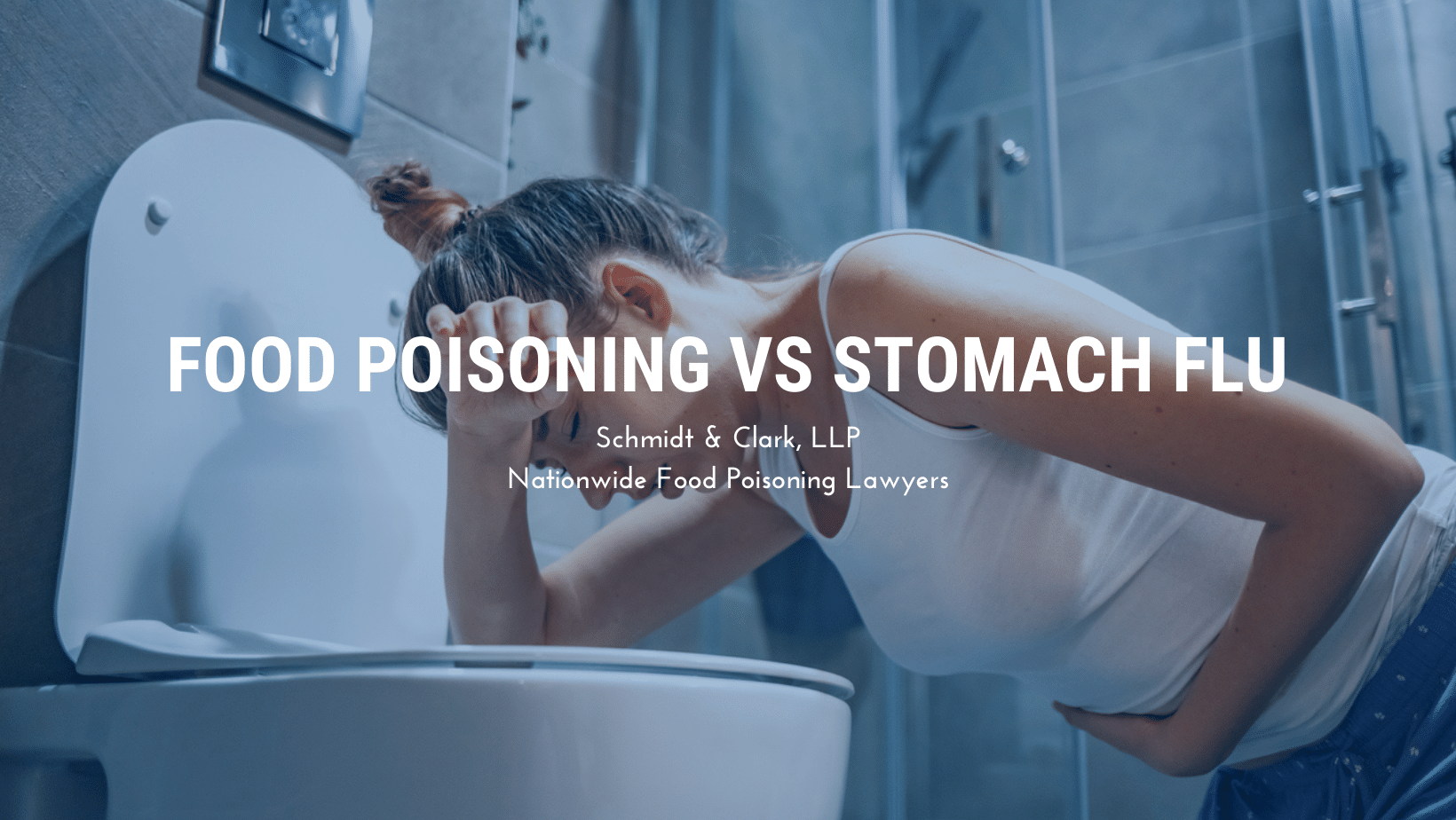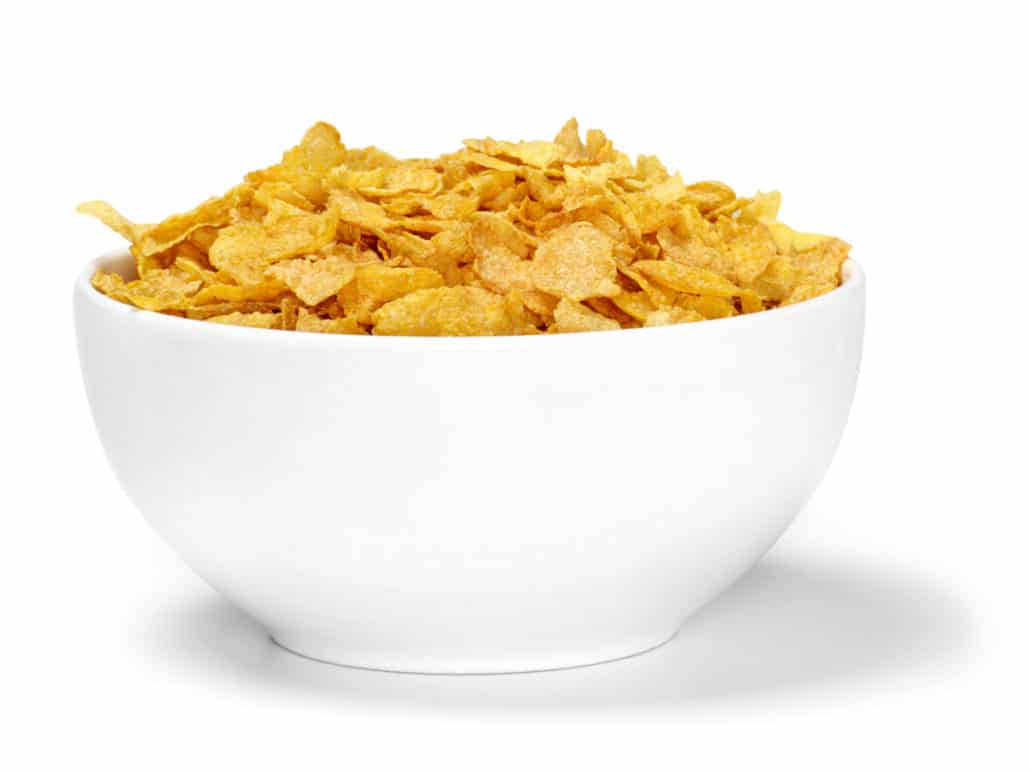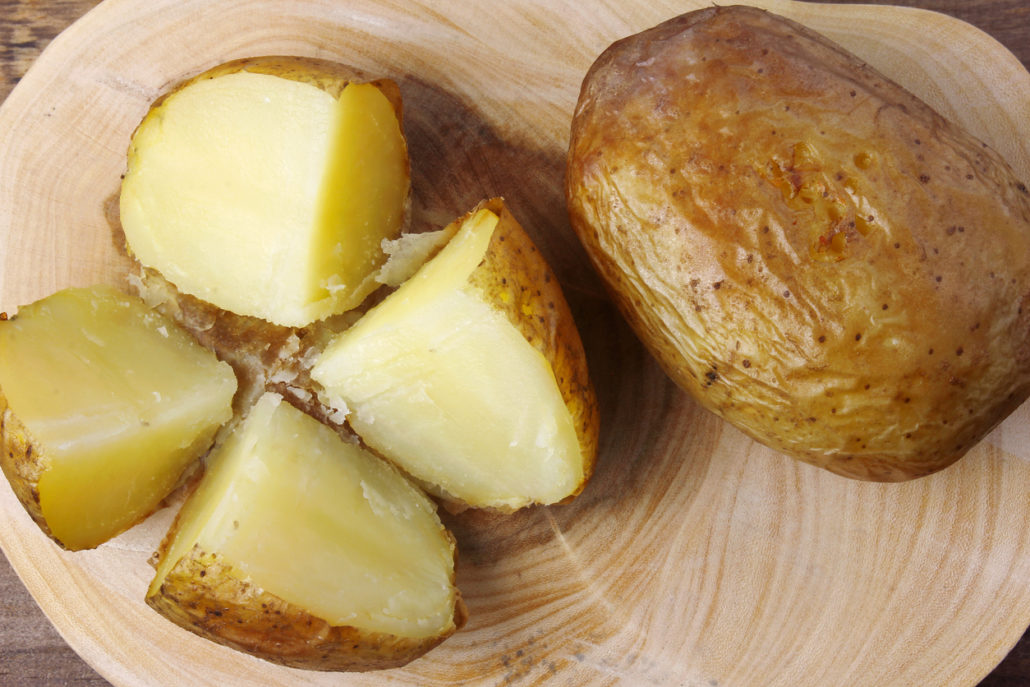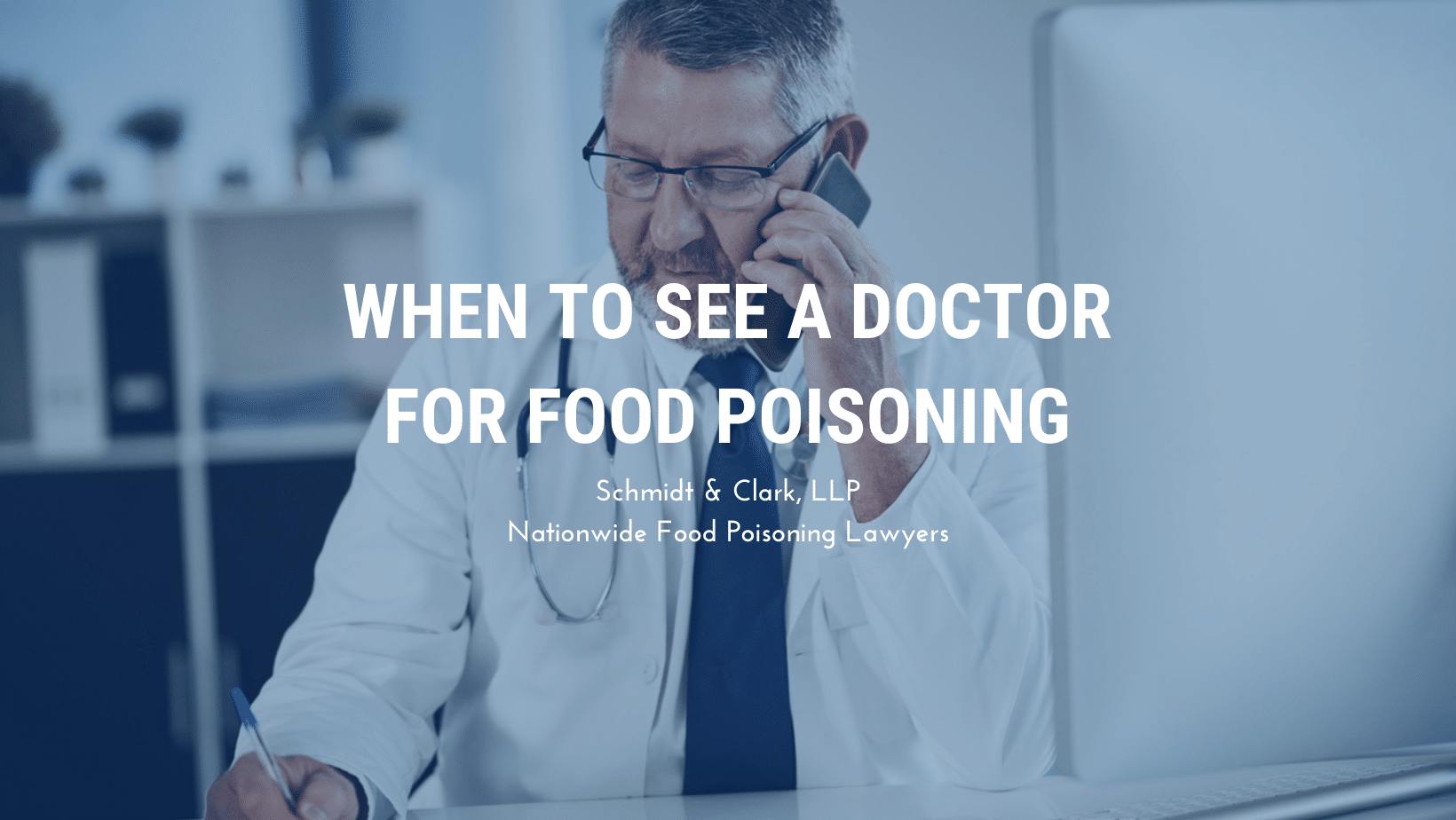You may be entitled to compensation by filing a food poisoning lawsuit and we can help. Please click the button below for a Free Confidential Case Evaluation or call us toll-free 24 hrs/day for more information by dialing (866) 588-0600.
Table Of Contents
- Quick Summary:
- Types of Food Poisoning
- Symptoms of Food Poisoning
- How Do I Know if it’s Food Poisoning or the Stomach Flu?
- How Can I Treat Food Poisoning?
- What to Eat After Food Poisoning?
- When to See Your Doctor
- Preventing Food Poisoning
- FAQs
- Get a Free Food Poisoning Lawsuit Evaluation With Our Lawyers
Quick Summary:
-
Food poisoning affects 48 million Americans yearly, caused by Norovirus, Salmonella, Clostridium perfringens, Campylobacter, and Staphylococcus aureus.
-
Most cases can be treated at home with hydration, bland foods, rest, and remedies like probiotics or ginger tea.
-
Seek care for high fever, blood in stool, severe dehydration, prolonged vomiting, or diarrhea lasting more than 2-3 days.
-
Prevent food poisoning by washing hands, avoiding unpasteurized products, washing produce, cooking meat thoroughly, and keeping kitchen items clean.
Types of Food Poisoning
According to information from the Centers for Disease Control and Prevention (CDC), the top 5 bacteria that cause foodborne illness in the United States include [1]:
- Norovirus
- Salmonella
- Clostridium perfringens
- Campylobacter
- Staphylococcus aureus (Staph)
Some other bacteria don’t cause as many illnesses, but when they do, the illnesses are more likely to lead to hospitalization.
Those germs include:
- Escherichia coli (E. coli)
- Clostridium botulinum (Botulism)
- Listeria
- Vibrio
Food poisoning affects millions of people each year in the U.S.
While the American food supply is among the safest in the world, the Mayo Clinic estimates that there are about 48 million cases of foodborne illness annually, which is the equivalent of sickening 1 in 6 Americans each year.
Each year these illnesses result in an estimated 128,000 hospitalizations and 3,000 deaths.
Symptoms of Food Poisoning
Food poisoning symptoms vary with the source of contamination.
Most types of bacteria cause symptoms in one or more of the following ways [2]:
- Nausea
- Vomiting
- Stomach cramps
- Watery or bloody diarrhea
- Abdominal pain and cramps
- Fever
These symptoms may begin within hours after eating the contaminated food, or they may begin days or even weeks later. Illnesses typically last from a few hours to several days.
Most people with a foodborne illness recover at home and don’t require professional medical treatment, although there are some situations where you should see a doctor to avoid long-term health problems.
Until you feel better, you should rest and drink fluids to prevent dehydration. Try to drink plenty of water, even if you can only sip it.
Eat if you have an appetite, but try small, light meals at first and stick to bland foods – such as toast, crackers, bananas, and rice – to avoid vomiting.
Oral rehydration solutions (ORS) are recommended for more vulnerable people, such as children, the elderly, and pregnant women.
How Do I Know if it’s Food Poisoning or the Stomach Flu?
In general, stomach viruses, such as the flu, take longer to develop but usually go away in about 24 to 48 hours after the onset of symptoms.
Food poisoning typically lasts longer. Food poisoning usually affects more than 1 person and can often be traced to cross-contamination or a specific outbreak.
A stomach virus is more likely to cause a fever, nausea, headache, and stomach pain.
How Can I Treat Food Poisoning?
The following tips from the Mayo Clinic can help you treat mild cases of foodborne illness from home without the need to see a doctor [3]:
- Let your stomach settle (stop eating and drinking for a few hours) to avoid vomiting
- Try sucking on ice chips or taking small sips of water
- Probiotics/sports drinks
- Ease back into eating
- Avoid certain foods and substances until you’re feeling better
- Rest
Most cases of food poisoning last from 1 to 5 days and symptoms resolve on their own. If symptoms last longer than that, you should contact your doctor.
Cyclospora infections may be difficult to detect and diarrhea may last for weeks.
Most people with a food poisoning illness experience vomiting, diarrhea, cramping, dehydration, and stomach pain.
You should make an appointment with a doctor if you have an associated fever, blood in your stool (rectal bleeding), signs of dehydration, or if your symptoms do not resolve after a couple of days.
Treatment for food poisoning by doctors may involve prescription antibiotics or medicines that target parasites, in addition to rehydration solutions and probiotics.
Probiotics are live microbes that may be similar to microbes that live in your digestive tract.
Studies have found that some probiotics may help decrease the severity of diarrhea. Be sure to talk with your doctor before using probiotics or any other alternative medicines or practices.
This is especially important with children, older adults, or those with weak immune systems who have diarrhea.
Healthcare professionals may need to treat people with life-threatening symptoms and complications—such as severe dehydration, hemolytic uremic syndrome, or paralysis—in a hospital setting.
Home Remedies for Food Poisoning
Fortunately, there are several natural home remedies that can help shorten the duration of a food poisoning illness.
These include:
- Lemons
- Basil
- Garlic
- Ginger tea
- Apple cider vinegar
- Bananas
- Cumin
- Peppermint tea
- Honey
- Yogurt
- Over-the-counter medicines
Remember to Hydrate
Oral rehydration solutions are a liquid treatment for food poisoning that contains glucose and electrolytes.
If your child has food poisoning, you should try an oral rehydration solution such as Pedialyte, Naturalyte, Infalyte, or CeraLyte, always use it as directed.
Gastroenteritis is a condition involving inflammation of the lining of the stomach and intestines. It typically resolves without medication; however, in some cases, it can lead to complications.
Food poisoning is a major cause of gastroenteritis, causing a range of unpleasant symptoms.
Gastroenteritis is usually caused by viruses, bacteria, or parasites; when the source of such infection is contaminated food, it is referred to as food poisoning.
Gastroenteritis may also be referred to as “gastric flu” or “stomach flu.”
Food Poisoning Medicine(s)
Drugs are available to help reduce the main symptoms of gastroenteritis, diarrhea, and vomiting:
- Antidiarrheal medication such as loperamide (branded versions include Imodium and Imotil) and bismuth subsalicylate (Pepto-Bismol).
- Antiemetic (anti-vomiting) medication such as chlorpromazine and metoclopramide.
- Antidiarrheals are available OTC, while antiemetics are available by prescription from doctors.
What to Eat After Food Poisoning?
When you feel you might be able to hold down food, eat foods that are gentle on your stomach and gastrointestinal (GI) tract. Stick to bland, low-fat, low-fiber foods.
Fat is harder for your stomach to digest, especially when it’s upset. Avoid fatty food to prevent upsetting your immune system further.
According to the Mayo Clinic, foods that are gentle on the stomach and may help include [4]:
- Cereal
- Egg whites
- Jell-O
- Oatmeal
- Peanut butter
- Plain potatoes, including mashed potatoes
- Rice
- Saltines
- Toast
- Applesauce
Avoid foods, drinks, and substances that are tough on the stomach, such as:
- Alcohol
- Caffeine, such as soda, energy drinks, or coffee
- Spicy foods
- Foods high in fiber
- Dairy products
- Fatty foods
- Fried foods
- Nicotine
- Seasoned foods
- Fruit juices
- Over-the-counter medications
When to See Your Doctor
Call your doctor if:
- You have diarrhea and are unable to drink fluids due to nausea or vomiting.
- You are on diuretics and have diarrhea, nausea, or vomiting.
- Diarrhea lasts for more than 2 to 3 days.
- There is blood in your stools.
- You have a fever over 101°F.
Call 911 if:
- You have signs of dehydration (thirsty, dizzy, lightheaded, faint).
- Bleeding is excessive or your stools are maroon or black.
- You are short of breath or having trouble breathing.
- Your heart is racing, pounding, or skipping.
- You may have poisoning from mushrooms, fish, or botulism.
- You have any nervous system symptoms like weakness, double vision, difficulty speaking, or paralysis.
- You have trouble swallowing.
The information contained on this page is for informational purposes only and does not constitute medical or legal advice. If you feel that you or someone you know has food poisoning, seek medical attention immediately by visiting your doctor or by dialing 911.
In severe cases, foodborne illness can lead to life-threatening dehydration and organ damage. Seek emergency medical care or call 911 if you experience change or loss of consciousness or confusion.- Dignity Health’s Guidelines.
Preventing Food Poisoning
While there’s no surefire way to prevent a foodborne illness, you can lower your risk by taking the following tips:
- Wash your hands after food handling, changing diapers, blowing your nose, touching animals, and going to the bathroom.
- Do not drink unpasteurized milk.
- Wash all fruits and vegetables before eating them.
- Keep your refrigerator colder than 40 degrees and your freezer below 0 degrees.
- Cook meat and seafood to be well-done.
- Keep your knives and cutting boards clean.
FAQs
1. What Are the Immediate Treatments for Food Poisoning?
Immediate treatments for food poisoning include staying hydrated, resting, and consuming bland foods. Severe cases may require medical attention.
2. When Should You Seek Medical Attention for Food Poisoning?
You should seek medical attention for food poisoning if symptoms include severe dehydration, high fever, prolonged vomiting, or blood in stool.
3. Are There Over-the-Counter Medications for Food Poisoning?
Yes, there are over-the-counter medications like anti-diarrheal or anti-nausea drugs that can help alleviate symptoms of food poisoning, but consult a doctor if symptoms persist.
See all related food poisoning lawsuits our lawyers have taken on.
Get a Free Food Poisoning Lawsuit Evaluation With Our Lawyers
The Food Poisoning Litigation Group at Schmidt & Clark, LLP law firm is an experienced team of trial lawyers that focus exclusively on the representation of plaintiffs in food poisoning lawsuits.
We are handling individual and group outbreak litigation nationwide and currently accepting new food poisoning cases in all 50 states.
If you or a loved one have been the victim of food poisoning, you should contact our lawyers immediately by using the form below or dialing (866) 588-0600. You may be entitled to compensation for your injuries by filing a food poisoning lawsuit and we can help.
Reference:
- https://www.cdc.gov/foodsafety/foodborne-germs.html
- https://www.mayoclinic.org/diseases-conditions/food-poisoning/symptoms-causes/syc-20356230
- https://www.mayoclinic.org/diseases-conditions/food-poisoning/diagnosis-treatment/drc-20356236

 Published by
Published by 











